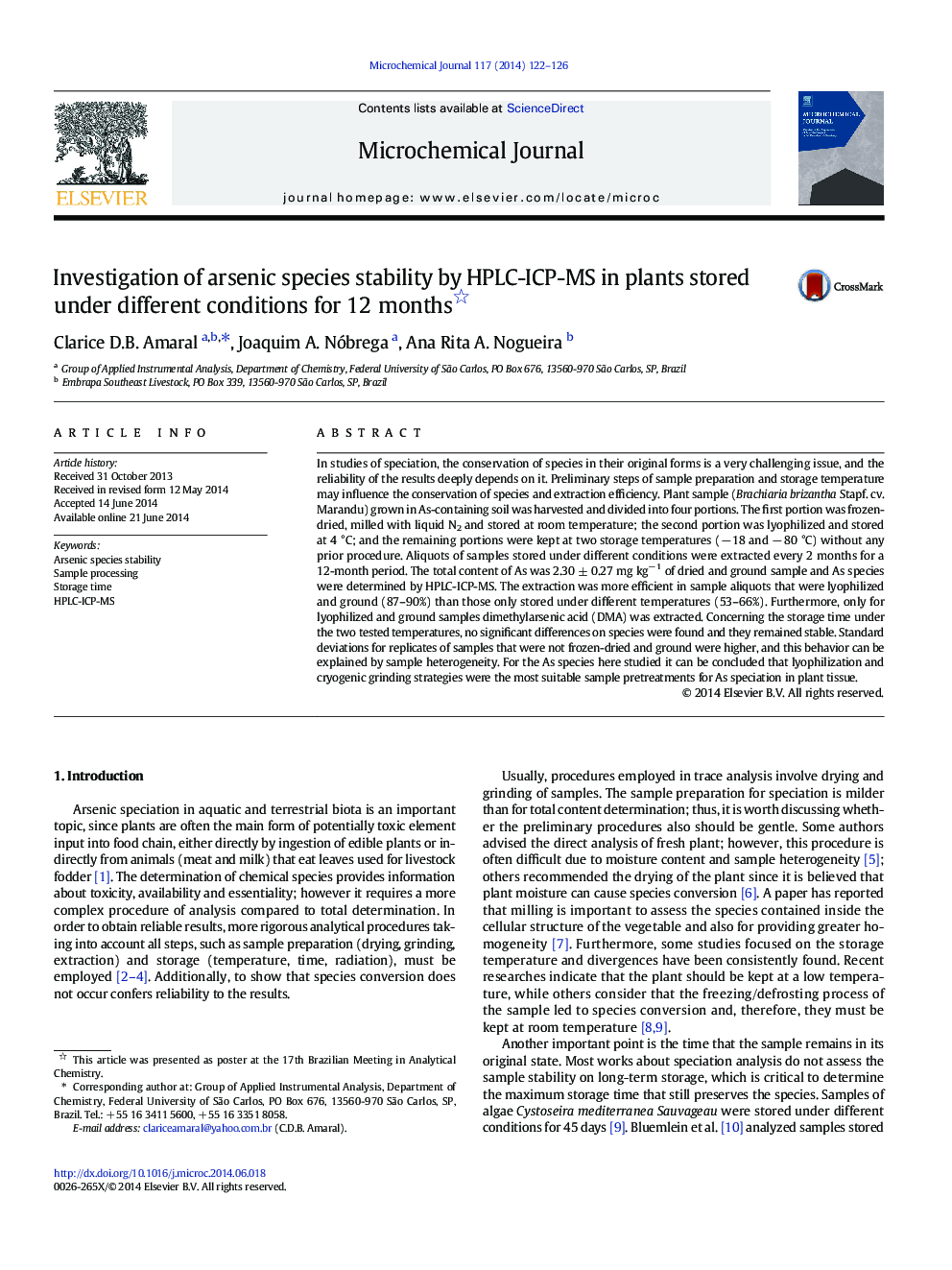| Article ID | Journal | Published Year | Pages | File Type |
|---|---|---|---|---|
| 7642896 | Microchemical Journal | 2014 | 5 Pages |
Abstract
In studies of speciation, the conservation of species in their original forms is a very challenging issue, and the reliability of the results deeply depends on it. Preliminary steps of sample preparation and storage temperature may influence the conservation of species and extraction efficiency. Plant sample (Brachiaria brizantha Stapf. cv. Marandu) grown in As-containing soil was harvested and divided into four portions. The first portion was frozen-dried, milled with liquid N2 and stored at room temperature; the second portion was lyophilized and stored at 4 °C; and the remaining portions were kept at two storage temperatures (â 18 and â 80 °C) without any prior procedure. Aliquots of samples stored under different conditions were extracted every 2 months for a 12-month period. The total content of As was 2.30 ± 0.27 mg kgâ 1 of dried and ground sample and As species were determined by HPLC-ICP-MS. The extraction was more efficient in sample aliquots that were lyophilized and ground (87-90%) than those only stored under different temperatures (53-66%). Furthermore, only for lyophilized and ground samples dimethylarsenic acid (DMA) was extracted. Concerning the storage time under the two tested temperatures, no significant differences on species were found and they remained stable. Standard deviations for replicates of samples that were not frozen-dried and ground were higher, and this behavior can be explained by sample heterogeneity. For the As species here studied it can be concluded that lyophilization and cryogenic grinding strategies were the most suitable sample pretreatments for As speciation in plant tissue.
Related Topics
Physical Sciences and Engineering
Chemistry
Analytical Chemistry
Authors
Clarice D.B. Amaral, Joaquim A. Nóbrega, Ana Rita A. Nogueira,
